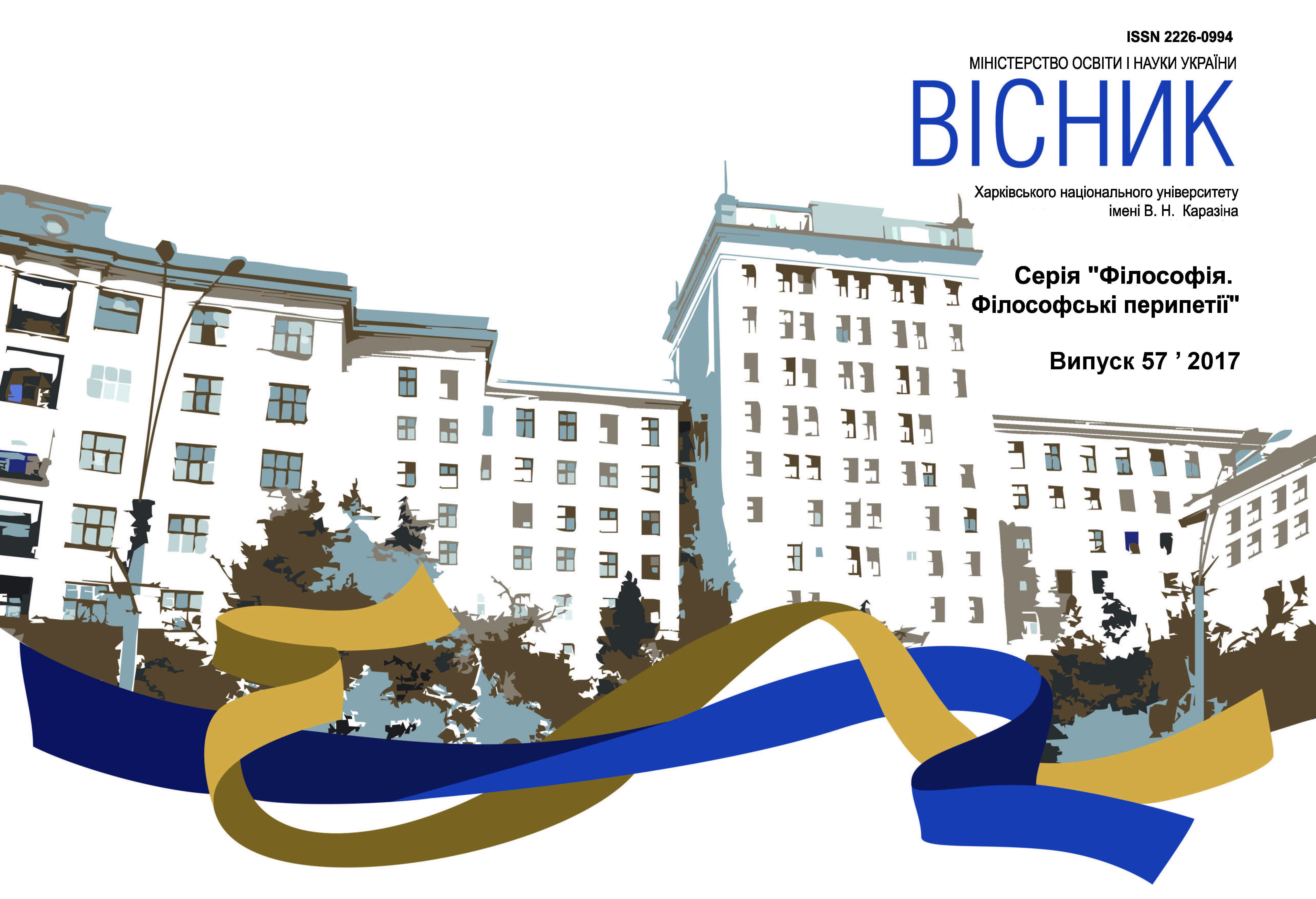THE SUBJECTIVE-OBJECTIVE ATTITUDE TO THE BODY IN ХХ CENTURY
Abstract
Problem setting. The problem of body dependence and releasing of social repressions became significant in XX century. The totalitarian ideology reinforcement; increasing of human enslavement in the sphere of alienation work; postmodernism art influenced negatively for the new plastic image of modern individual. Recent research and publications analisis. The question of body realization was the research object for V. Reich, E. Fromm, G. Markuze, O. Lowen, F. Perlz, who used the psychoanalytical approach in this problem solution. Among modern scientists of this philosophic problem the attention to the body was given by E. Gazarova, I. Gorelov, L. M. Krol, E. L. Mikhailova, V. Sorell. Paper objective. We will try to reveal the factors which influenced the forming of subjective-objective attitude to body and the ways of solution the problem of human alienation of his body and nature and loss of his integrity. Paper main body. Characteristic feature of XX century plastic culture is he alienation from the body. The civilization learned to rule the “obedient bodies” and manipulating the consciousness at the same time. The first part of the XX entury gave birth to the subjective-objective attitude to the body. The body of som humanbecomes the object manipulated by other subjects. Not the last role in this body transformation was played by consumer psychology formed in XX century by market economy conditions. Plastic image of perfect person of XX century is monotype and does not correspond the variety of self-expression and body development that has place in eastern world. Medicine and psychology development on the one hand had widened the cognition measures of physical and mental processes in human body and on the other hand they made person to be lazy in learning and realizing the peculiarities of exactly his body. This caused the health problems and his inability to solve problems himself, without any help. Person stopped to trus his body, love it and care of it as the living organism. The modern person attitude can be determined as the exploitation. The estrangement from the body is the consequence of estrangement work that person does not enjoy. In the way of self-expression the western civilization person became more familiar and primitive than free and harmonious. Harmonious spiritual and physical personal development mainly depends on his body consciousness and plastic expression, their correlation with feelings and thinking. Body neglect, its plastic language in different cultural periods caused the person alienation from the his nature and loss of his integrity. Subjective-objective attitude to the body in ХХ century found the reflection in the communication as well. Wire and mobile connection limit the communication sphere by only verbal way of communication. Such style of communication contributes to the human substitute by machines that provide information. Conclusions of the research. Finding the state of spiritual and physical comfort is possible in condition of soul and body unity. The main method to get this state is forming the complete world view, absence of other internal conflicts that prevent person to put up with himself, forgive and accept himself.
Downloads
References
Газарова Е. Э. Психология телесности / Е. Э. Газарова. – М. : Институт общегуманитарных исследований, 2002. – 192 с.
Кроль Л. М. Человек-оркестр: микроструктура общения / Л. М. Кроль, Е. Л. Михайлова. – М. : ТОО «Независимая фирма “Класс”», 1993. – 154 с.
Лоуэн А. Радость / А. Лоуэн ; [пер. с англ.]. – Минск: Попурри, 1999. – 464 с.
Лоуэн А. Язык тела / А. Лоуэн ; [пер. с англ.]. – Ростов-на-Дону : Феникс, 1998. – 383 с.
Маркузе Г. Эрос и цивилизация / Г. Маркузе ; [пер. с англ., послесл., примеч. A. A. Юдина; сост., предисл. В. Ю. Кузнецова]. – М. : АСТ, 2003. – 528 с.
Перлз Ф. Гештальт-подход. Свидетель терапии / Ф. Перлз ; [пер. с англ. М. Папуш]. – М. : Издательство Института психотерапии, 2001. – 224 с.
Райх В. Функция оргазма / В. Райх ; [пер. с нем. В. Костенко]. – СПб. : Университетская книга ; М. : АСТ, 1997. – 87 с.
Фромм Э. Психоанализ и этика / Э. Фромм ; [пер. с англ.]. – М. : Республика, 1993. – 415 с.
Authors who publish with this journal agree to the following terms:
- Authors retain copyright and grant the journal right of first publication of this work under the terms of a license Creative Commons Attribution License 4.0 International (CC BY 4.0).
- Authors are able to enter into separate, additional contractual arrangements for the non-exclusive distribution of the journal's published version of the work (e.g., post it to an institutional repository or publish it in a book), with an acknowledgement of its initial publication in this journal.
- Authors are permitted and encouraged to post their work online (e.g., in institutional repositories or on their website) prior to and during the submission process, as it can lead to productive exchanges, as well as earlier and greater citation of published work.






3.gif)




